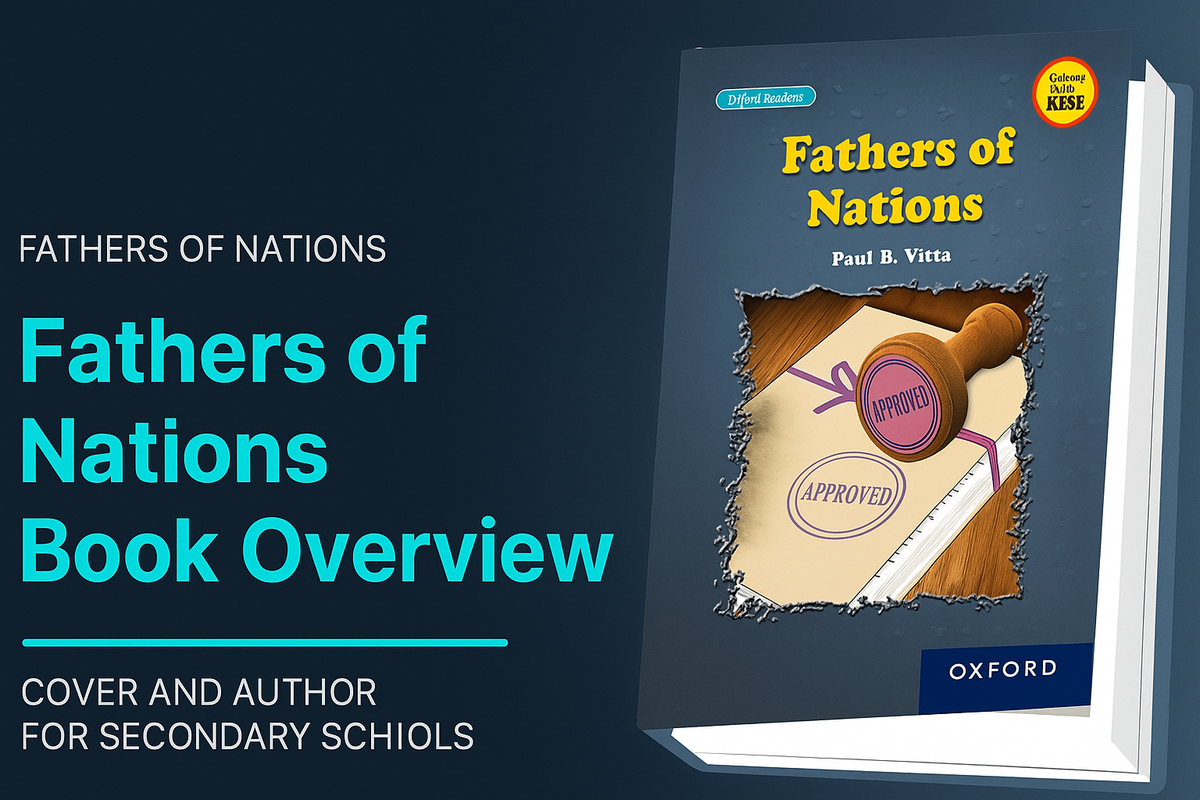Fathers of Nations

Fathers of Nations — Book Overview
Fathers of Nations by Paul B. Vitta is a novel taught in senior schools across Kenya as part of the literature syllabus. It’s a sharp, satirical story about African leadership, politics, and the search for real progress.
Before you dive into guides and reviews (like this one), it’s always a good idea to read the book itself first — from start to finish. You’ll enjoy it more, understand it better, and spot things no guide can fully explain.
That said, this overview will help you quickly grasp the main story, key themes, and important characters — and hopefully, make your own reading even more enjoyable.
What’s in the title?
The phrase "Fathers of Nations" is often used to describe famous African leaders like Julius Nyerere, Kwame Nkrumah, and Jomo Kenyatta — those who led their countries to independence. It’s meant to honour them as founding figures.
But in this novel, the title is used with a touch of sarcasm. The leaders we meet in the story may be called “Fathers of Nations,” but they are far from heroic. They are mostly corrupt, selfish, and out of touch — and their decisions affect millions of ordinary citizens.
The story in a nutshell
The plot centres around a summit in Banjul, The Gambia, where fifty African heads of state have gathered. The official goal? To discuss and (hopefully) adopt a new plan called Way Omega, which is supposed to bring economic growth to the continent.
But behind the scenes, a rival group is pushing for an alternative plan called Path Alpha, which they believe will lead to real change — not just empty promises.
At the heart of this mission are four men from different parts of Africa:
- Professor Kimani (Kenya)
- Comrade Melusi (Southern Africa)
- Engineer Tahir (North Africa)
- Pastor Chiamaka (West Africa)
Each of them has suffered under their country’s government — loss of family, imprisonment, injustice — and they’ve come to Banjul hoping to help turn things around.
They don’t know each other at first, but they are guided by Mr. Thaddeus Longway and supported by journalist Fiona McKenzie and intelligence officer Nicholas Sentinel. Together, they aim to introduce Path Alpha at the summit and convince the leaders to adopt it instead of Way Omega.
The leaders at the summit
The summit is filled with colourful (and often clueless) heads of state:
- President Didier Bangoura (old and confused)
- President Dibo Dibonso (in power for 40 years)
- King Jemba Jemba IV (a king for life)
- President Wasi Wasi (a master of coups and atrocities)
Most of them are more interested in holding onto power than helping their people.
The outcome
After much confusion and political games, a committee called the Method Committee is set up to decide between Way Omega and Path Alpha. In a humorous and absurd moment, the final choice is made using a toss of a coin and a simple decision matrix.
In the end, Path Alpha wins — a small victory for those hoping for a better future in Africa.
Final thoughts
Fathers of Nations uses satire and clever storytelling to highlight the real struggles facing many African countries: bad leadership, corruption, and the challenge of achieving true development.
It’s a great book for sparking discussion about politics, justice, and change. And while it can be funny at times, it also asks some very serious questions.
So — read it with an open mind, a sharp eye, and maybe a sense of humour too.